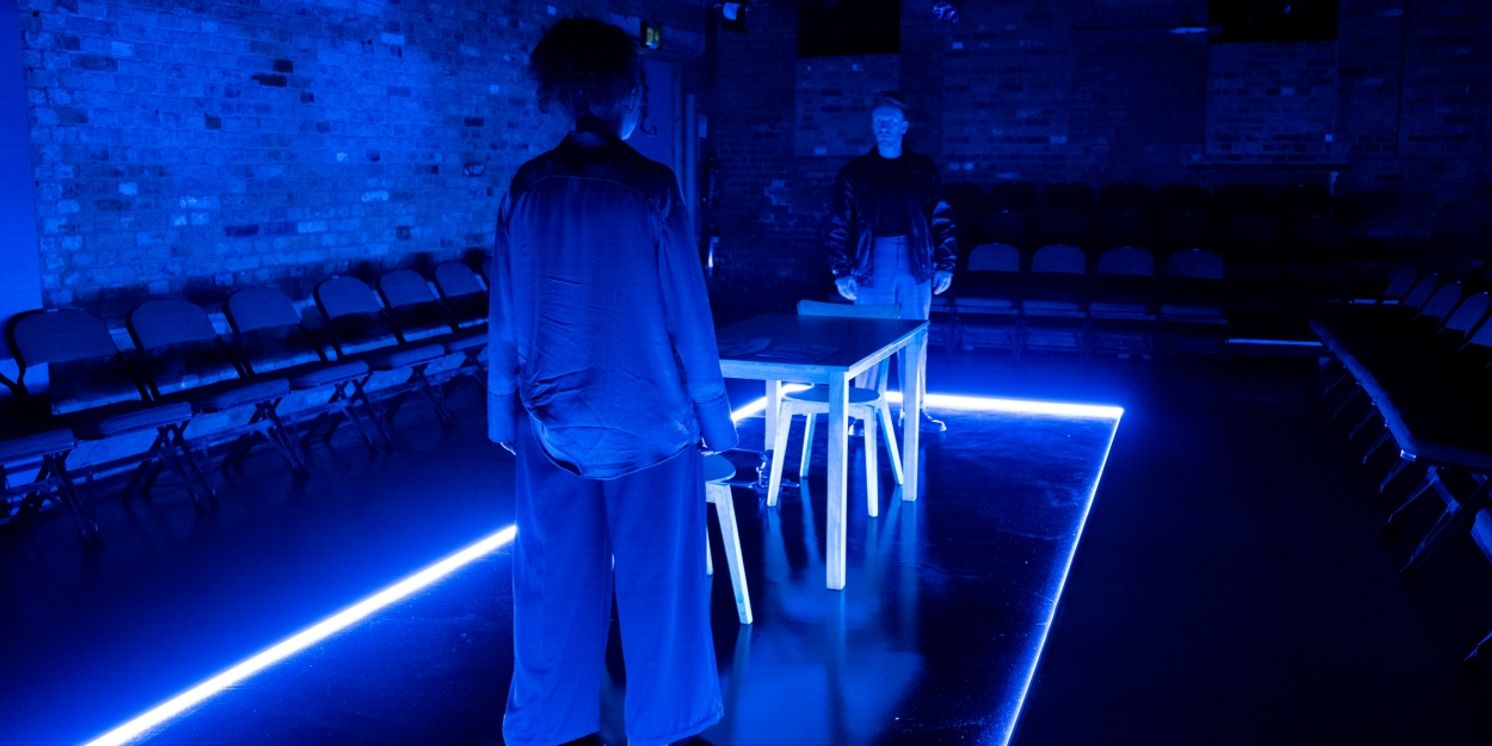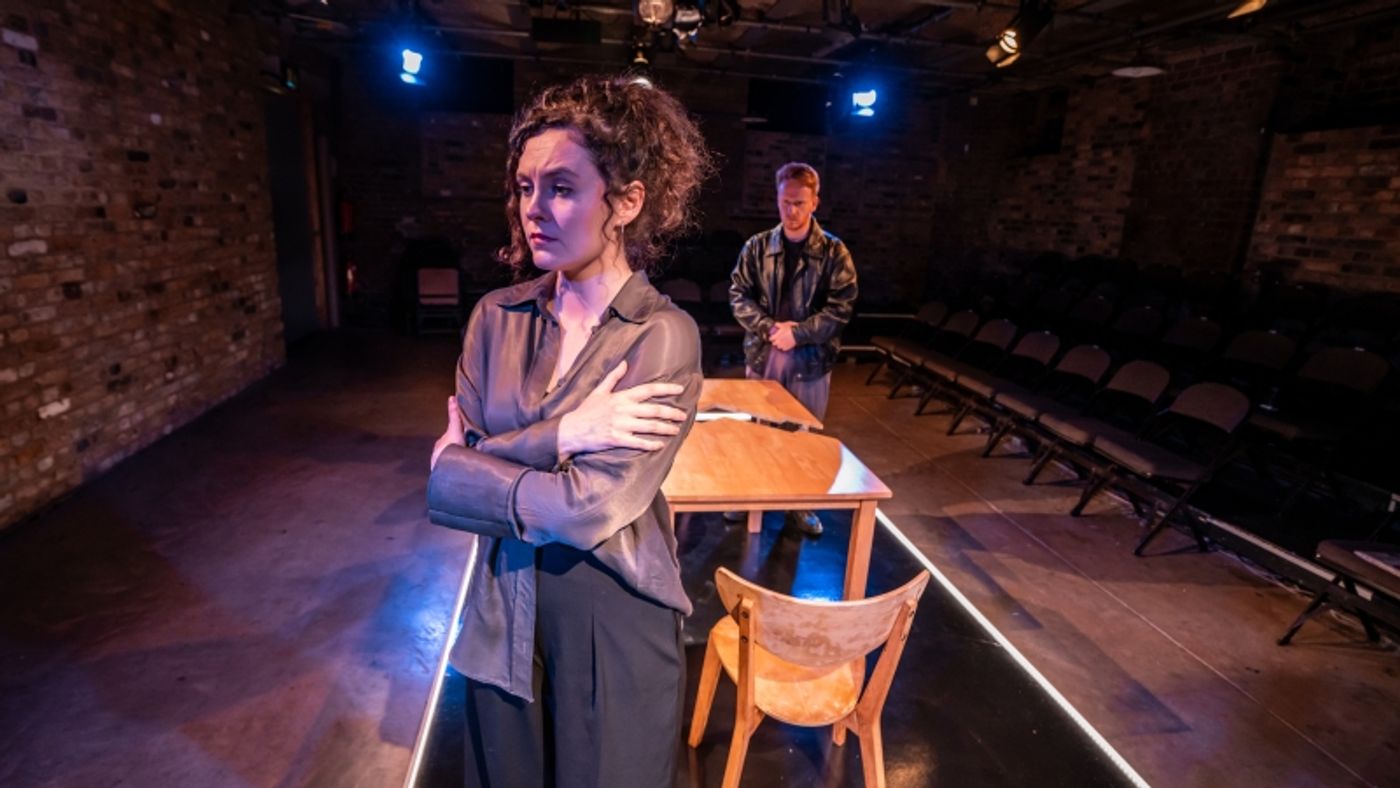Review: UTØYA, Arcola Theatre
Three stories play out on the periphery of the 2011 massacre, but one theme unites them

 Sometimes a reviewer has to go full gonzo and leave behind the objective stance to strike out in search of how a play has spoken to them personally. Very early in the Arcola Theatre’s studio space, I realised that I would need the first person pronoun and I’d need plenty of them.
Sometimes a reviewer has to go full gonzo and leave behind the objective stance to strike out in search of how a play has spoken to them personally. Very early in the Arcola Theatre’s studio space, I realised that I would need the first person pronoun and I’d need plenty of them.
Three stories are told, each set on the edge of the 2011 Utøya Massacre that took the lives of 69 souls, most of whom were teenagers, on the Norwegian island and eight more in Oslo. Sure Italian playwright, Eduardo Erba, can veer towards soapy cliches, but the expression, “I felt like I was in a film” is often the only way people can express what it is like to be caught up in such events.
It’s easy for me to identify, if not to empathise, with Gunnar, a leftish university lecturer who is more interested in his books (and other distractions) than in his wife, Malin, and daughter, Christine, both of whom resent his self-centred nature. I also know what it’s like to send a child to learn about collective responsibility and its reward - my own kids were in the Woodcraft Folk, the nearest equivalent of the socialist organisation targeted in the attacks.
Their relationship, creaking already, cracks under the strain of the long wait for news of their daughter’s fate. Having been unable to contact my partner, who was in the ‘right time and right place’ for the 7/7 bombings, I can promise you that the brain is scrambled in such circumstances. For me, the good news came through less than an hour before I had to come up with something to tell our kids after school.
Petter and Inga are siblings managing a farm, with suspicions about a neighbouring property with its white van and excessive deliveries of fertiliser. Petter wants to act on his suspicions, but Inga adheres to the Scandinavian code of polite distance. Having had a home in Sweden for over 20 years, I have seen the benefits and drawbacks of this national reserve. Though it’s changing as demographics change, it’s still there and it’s still surprising to a man who grew up in England’s most Roman Catholic city, Liverpool.
Unni and Alf face a dilemma. Police officers designated to patrol the camp on the island, they are less than half a mile from the jetty with the boats that can take them there and they also have access to firearms. Unni wants to go and protect the kids; Alf is awaiting orders.
Many times, for much lower stakes of course, I have found myself in work situations in which following procedures is damaging in the short tern, but subverting them is damaging in the long term. What do you do? Give in to saviour complex and come riding over the horizon like a white knight or respect the fact that there may be something you’re missing and you would only make a fool of yourself or, worse, deepen the problems still further?

Kate Reid and Marco Young play all the parts on a square set that suggests a boxing ring, director, Sarah Stacey, ratcheting up the tensions between the blackouts that move us from one pair to the next every five minutes or so. That structure makes it tricky to work out which pair we’re with at times, a problem exacerbated by the power structure between each man and each woman being similar, perhaps even identical.
But maybe that is the point. At the heart of the play is toxic masculinity, the driver of the gunman’s nihilistic psychosis, the smarmy police officer’s hierarchy fetishism, the farmer’s entitlement and the university teacher’s objectification of his students and distance form his family. All these men are, at their core, the same man and the women cannot penetrate their carapace of ego. Yet here it is in idyllic Bergen, in wealthy, liberal Norway, in one the happiest countries on Earth.
Writing about this 2015 play on the very day that the Home Secretary has announced that extreme misogyny will be treated as a form of terrorism for the first time, I can only wonder why it’s taken so long.
Utøya runs at the Arcola Theatre until 31 August
Photo Credits: Mariano Gobbi
Reader Reviews
Videos

